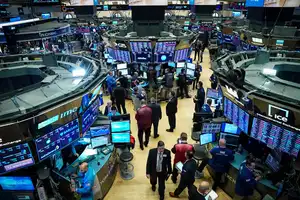In the futures market, short-term speculation is a dominant strategy due to the nature of futures contracts, which are inherently short-term in nature. While some traders may choose to roll over their contracts and treat them as continuous contracts, the majority of participants focus on shorter time frames.
Unlike other markets like the stock market, where long-term expectations and investing are prevalent, the futures market is more focused on short-term price movements. Traders in the futures market are less concerned with the price of an asset several years or even months from now. Instead, their main objective is to profit from short-term price fluctuations.
Moreover, the futures market operates as a zero-sum game, where every profit for one trader corresponds to a loss for another. This competitive nature makes the futures market more intense and focused on trading rather than long-term investing or other strategies like hedging.
Overall, the futures market is characterized by its dynamic and competitive nature, attracting traders who seek to capitalize on short-term price movements and outperform their peers in a highly competitive environment.
How Individual Traders May Compete
In futures trading, successful outcomes rely on traders’ abilities to predict price movements accurately and make informed decisions based on market analysis and strategies.

Professional traders, with their experience and expertise, are indeed better positioned to succeed in futures trading. They have honed their skills through years of practice, and their track records reflect their competence in navigating the market successfully.
While trading full-time can be advantageous in terms of dedicating more time to develop and refine trading skills, it is not the sole determinant of success. The key factor is the level of skill and knowledge a trader possesses. There are successful traders who trade part-time while managing other responsibilities, and there are also traders who dedicate themselves full-time but may not be as skilled.
In the futures market, money flows from less skilled traders to more skilled traders over time due to the competitive nature of the market. While there may be some participants who lack the necessary skills and knowledge, a significant portion of the money in the market is actively managed by skilled traders who consistently generate profits.
The presence of skilled traders and their successful outcomes raises the bar for other participants, motivating them to improve their skills and become more proficient traders. As with any skill-based endeavor, those who invest time and effort into learning and improving have a better chance of succeeding in futures trading.
The Focus Is Still on Beating the Market Though
Successful futures trading ultimately comes down to how skilled a trader is at predicting price movements and making effective trading decisions. While there may be opposing positions taken in each futures contract, the key factor is the trader’s ability to make accurate predictions, regardless of who takes the other side of the trade.
The difficulty in predicting price movements may vary depending on the asset being traded. Some assets may have more unpredictable price movements due to factors like insider knowledge, while others may be more influenced by technical analysis and short-term trends. For example, stock indexes like the S&P 500 are influenced by movements in the underlying stocks, and short-term trading may focus more on technical analysis.
Technical trading, where traders rely on chart patterns and historical price data, is a popular approach in futures trading, especially for short-term trading. It allows traders to identify trends and patterns in price movements, helping them make informed decisions about when to enter and exit trades.
You are right that more traders following similar trends can create competition in the market, but skilled traders can still find profitable opportunities by identifying reliable trends and adjusting their strategies accordingly. This competitive aspect is part of what makes trading challenging and exciting.
In the end, a trader’s success in the futures market is determined by their skill in navigating the market and generating profits. The market itself is the ultimate opponent, and traders are constantly striving to outperform it. Skillful trading that produces profitable results is the key to success in the futures market.
The Challenge of Money Management with Trading
While the higher leverage offered by futures trading can potentially amplify profits, it also increases the risk of significant losses if not handled wisely.
Legendary traders have indeed experienced significant losses at times due to inadequate risk management. Even skilled traders can encounter drawdowns, but the key is to minimize the impact of these drawdowns on the overall account balance. The goal is to limit losses during periods of underperformance and protect one’s trading capital until the tide turns.
Simulated trading or paper trading is an excellent way for new traders to practice and refine their strategies without risking real money. This helps them gain experience and build confidence before transitioning to trading with real money.
In addition to managing risk, traders must also ensure they have sufficient capital to trade futures comfortably. Overleveraging or trading with insufficient funds can lead to disaster, as it becomes challenging to manage positions effectively.
Contracts for Difference (CFDs) can be an alternative for those with smaller accounts, as they often have lower minimums compared to futures contracts. It’s important to choose the trading instrument that aligns with your risk tolerance and capital availability.
As you rightly mentioned, trading is a game of probabilities. No trader can be correct all the time, and the focus should be on managing risk exposure rather than seeking excessively large profits. Minimizing drawdowns and preserving trading capital is crucial for a trader’s long-term success.




